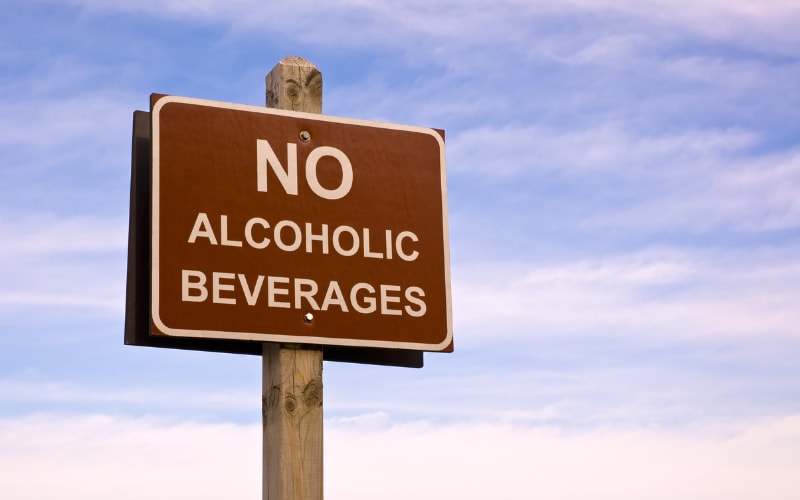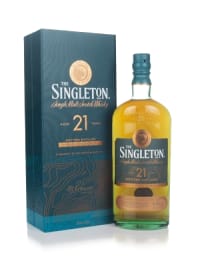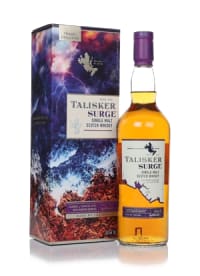To address what it refers to as the country's "deep, long-standing, and dysfunctional connection with alcohol," the Scottish Government is consulting on how it might restrict the advertising of alcohol goods.
Officials contend that alcohol advertising makes drinking more appealing to adolescents and teenagers, and that a broad prohibition is necessary since limiting specific channels has little effect. The Scottish government suggested a ban on alcohol advertising on television, on outdoor billboards, and through sports and event sponsorship in a consultation that was published in November of last year.
The Issue With Alcohol
The Office for National Statistics (ONS) has released statistics, which shows that there were 7,423 alcohol-related fatalities reported in the UK in 2020. This is a little rise over the 7,376 alcohol-related fatalities that were reported in 2019.
Deaths specifically linked to alcohol abuse include those brought on by liver disease, alcohol poisoning, and mental and behavioral problems brought on by alcohol consumption. It's important to note that deaths from other causes that are connected to alcohol, such as car accidents, slips and falls, and other injuries, can also be classified as alcohol-related deaths.
Although the number of alcohol-related deaths in the UK has remained mostly steady in recent years, the detrimental effects of alcohol abuse on public health and welfare continue to be of concern. Policymakers and healthcare professionals in the UK continue to place a high priority on public health initiatives and campaigns targeted at decreasing alcohol-related damage, such as minimum unit price and education initiatives.
Lastly there is also alcohol-related damage to take into account. This alcohol abuse comes at a monetary price, and alcohol abuse has several additional detrimental effects as well. The yearly cost of alcohol harm to Scottish society is projected to be over £3.6 billion ($5 billion), including expenses for healthcare, crime, and lost productivity, according to a research by the Scottish Government.
The Current Regulations
The Advertising Standards Authority (ASA) and the Committee on Advertising Practice oversee alcohol advertising in the UK (CAP). The CAP Code, which establishes standards and guidelines for alcohol advertising across numerous media channels, including TV, radio, print, and digital media, informs the current regulatory position on alcohol advertising in the UK.
The CAP Code mandates that alcohol advertising be responsible and refrain from promoting excessive drinking or reckless conduct. Advertising that targets people under the age of 18 is prohibited, as is any message that suggests drinking is important for relaxation or stress reduction or that it might help people succeed socially or romantically. The Code also specifies rules for the use of health and nutrition claims in alcohol promotion, as well as rules for labeling and packaging.
There are other rules that regulate the advertising of alcohol in some situations in addition to the CAP Code. For instance, it is typically forbidden to advertise alcohol in public places and on public transportation, and there are limitations on this practice at athletic events and music festivals.
Broadly, the UK's regulatory approach to alcohol advertising seeks to strike a balance between the right of alcohol manufacturers and merchants to market their goods and the need to safeguard the public's health and safety, particularly with regard to children and other vulnerable individuals.
The New Proposal
According to the consultation document, it is essential that any proposed limitations on the marketing of alcohol be as thorough as feasible. As a result, ministers are putting out a number of regulations that, if passed, would completely outlaw some forms of alcohol promotion and significantly curtail the others. The type and extent of marketing efforts for beverage firms as well as the practical ramifications for the licensed trade would be significantly impacted by such developments.
Proposals floated in the consultation include restrictions on:
- Sponsorship of sporting events
- Marketing in outdoor and public settings
- Promoting booze within stores
- Merchandise and brand-sharing
- Internet marketing
- Print advertising
- Radio and television advertising
- Advertisements' content
The alcohol sector expressed concerns when the survey was initially released that brand names would be eliminated from store signs and manufacturers, including from destinations that draw tourists, such distilleries and Edinburgh's Johnnie Walker Experience and Scotch Whisky Experience. The high street might lose its window displays as well.
The Scottish Parliament was informed by First Minister Nicola Sturgeon that a ban on signage at places like distillery buildings and on goods was "not in our present thinking." She emphasized, "There is also a world of difference between a Johnnie Walker baseball cap and a billboard outside or near a school."
The consultation paper examines alternative enforcement strategies, such as collaborating with current regulatory organizations to keep track of and enforce Scottish regulations. It is also suggested that a new regulatory system or entity be established.
The interaction between these suggestions and their planned enforcement and the existing, strong set of regulations is yet unknown. The consultation document doesn't make it quite apparent why the current laws are insufficient or how the new enforcement system would be any more successful.
The Effect Of The Ban
According to a survey by the Scotch Whisky Association, the Scotch whiskey sector alone supports an extra 30,000 jobs in the supply chain and provides $5 billion ($6.9 billion) to the Scottish economy yearly. It also directly employs about 10,500 people. The larger alcohol sector, which includes beer, wine, and spirits, also contributes significantly to Scotland's economy and jobs.
Additionally as stated by Scottish Tory MSP Murdo Fraser, whose party has opposed the measures, whisky tourism, which may be negatively damaged by the limitations, is worth "around £84 million yearly to the Scottish economy."
While these conversations are still in their early stages, it is obvious that what is anticipated is a set of extensive and far-reaching advertising limitations that aim to establish a rigid framework within which beverage businesses can sell their goods. The Scottish drinks industry may have to deal with a fairly onerous set of regulations if these proposals are implemented in their entirety (and it should be noted that some of these proposals would probably require the support of the UK government, particularly those relating to broadcasting and the internet).








